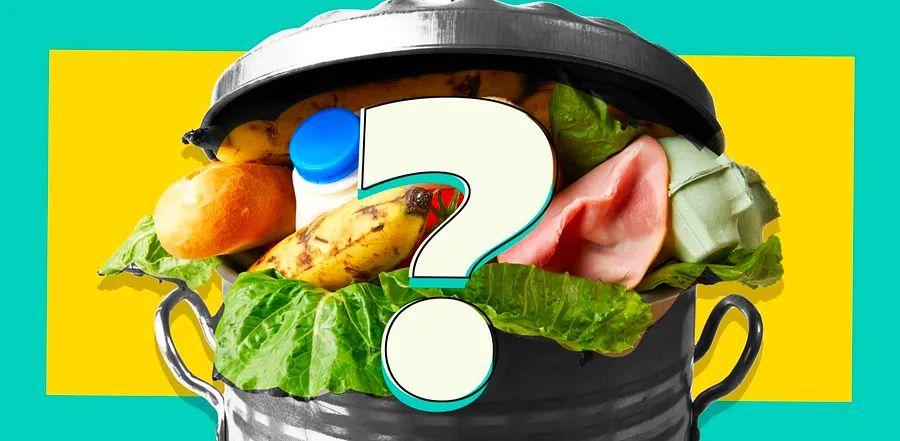The 10 Groceries You’re Most Likely to Waste—and How to Stop Losing Money on Them

Why Do We Throw Away So Much Food?
Several factors contribute to the high percentage of groceries and budget we end up wasting. According to a HelloFresh survey, some participants admitted to cooking too much food with the hope of having leftovers, only to toss it because they couldn't finish it. Others mentioned discarding food simply because they lost interest in eating it after buying it.
Food waste can start before you even get home from the store. Nearly 20% of respondents confessed that they often misjudge how much food they'll actually need. A lot of shoppers also regret buying certain items, with many admitting they buy more than they’ll use. On average, respondents reported discarding at least five items weekly that they wish they'd bought in smaller amounts.
Finally, many survey participants expressed uncertainty about how to store their food properly to keep it fresh longer. So, what are the best ways to avoid wasting unused groceries?
To raise awareness about common food waste, the poll highlights the top ten grocery items that are most likely to end up in the trash. Here’s a breakdown of these items, along with tips to reduce waste and save money.
What Are the Ten Most Wasted Foods in Your Kitchen?
Carrots
The shelf life of carrots depends on proper storage. To keep them fresh, store carrots in a perforated plastic bag in the veggie drawer of your fridge, allowing air circulation. When stored this way, they typically last 3 to 4 weeks. If they start to wilt, consider steaming and freezing them for later use, or even pickling them.
Meat
Meat packages come with a 'Best By' date marked by the butcher or store. When buying meat, be sure to check these dates to ensure you can use it within the recommended timeframe. If you’re not planning to use it soon, don’t purchase it. If you’ve already bought the meat but your plans change, it’s safer to freeze it for later. Ground beef, for example, can stay in the freezer for several months.
Eggs
Eggs are one of the most common items on our grocery lists, often bought without a second thought. But before grabbing that carton, consider how many eggs you actually need. Are you making a week’s worth of scrambled eggs or cooking for a large brunch crowd?
Even more importantly, check your fridge before heading to the store to avoid buying eggs you don’t need. If you end up with excess, you can freeze eggs for future use, or explore our vast collection of egg-cellent recipes to use them up creatively.
Deli Meats
We've all overestimated how much deli meat we need, leading to leftovers piling up in the fridge. Since deli meats should be used soon after slicing, it's crucial to avoid buying too much. Instead of prepackaged options, try getting fresh slices at the deli counter, where you can purchase only what you need.
Avocado
How do you plan to use your avocados? Are you making avocado toast for yourself or preparing a large batch of guacamole for guests? Avocados can be pricey, so it’s wise to buy only as many as you’ll need. Once cut, avocados can turn brown quickly, but with some simple storage tips, you can keep them fresh longer. Have more than you can use? Freeze them (yes, avocados can be frozen)!
Bread
Bread is another grocery staple that's easy to overbuy, often resulting in stale leftovers. Fortunately, bread freezes wonderfully, so you can stock up during sales and save loaves for later. If your bread does go stale, don’t toss it—use it to create something delicious instead.
Milk
Will your family actually finish a gallon of milk before it expires? Do you already have a half-used carton in the fridge? Milk is one of those items we often buy out of habit, ending up with more than we need. But your freezer can be a lifesaver—freezing milk is a simple solution to prevent waste and save money.
Apples, Bananas, & Other Fruit
Bananas can spoil quickly when exposed to too much light and warmth. If you bought them in a plastic bag, remove them and let them sit in the open air on your kitchen counter. Frozen bananas are perfect for smoothies. To keep apples fresh for months, store them in the fridge’s crisper drawer. Avoid buying pre-cut fruit like melon and pineapple, which spoil fast; instead, buy and cut your own to save both money and reduce waste.
Lettuce
Leafy greens top the list of the most wasted foods. Properly storing greens can extend their freshness, but when possible, opt for whole leaf lettuce instead of pre-packaged varieties. Additionally, always check for recalls and avoid buying greens during an outbreak or safety concern—romaine and bagged salad mixes are frequently recalled.
Evaluation :
5/5



